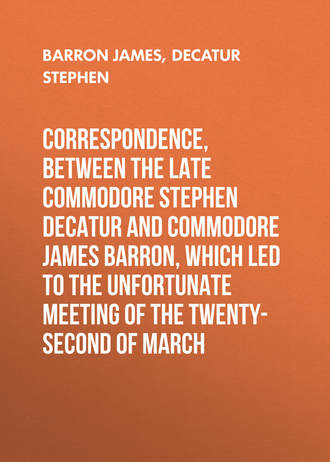Correspondence, between the late Commodore Stephen Decatur and Commodore James Barron, which led to the unfortunate meeting of the twenty-second of March
 полная версия
полная версияCorrespondence, between the late Commodore Stephen Decatur and Commodore James Barron, which led to the unfortunate meeting of the twenty-second of March
Настройки чтения
Размер шрифта
Высота строк
Поля

